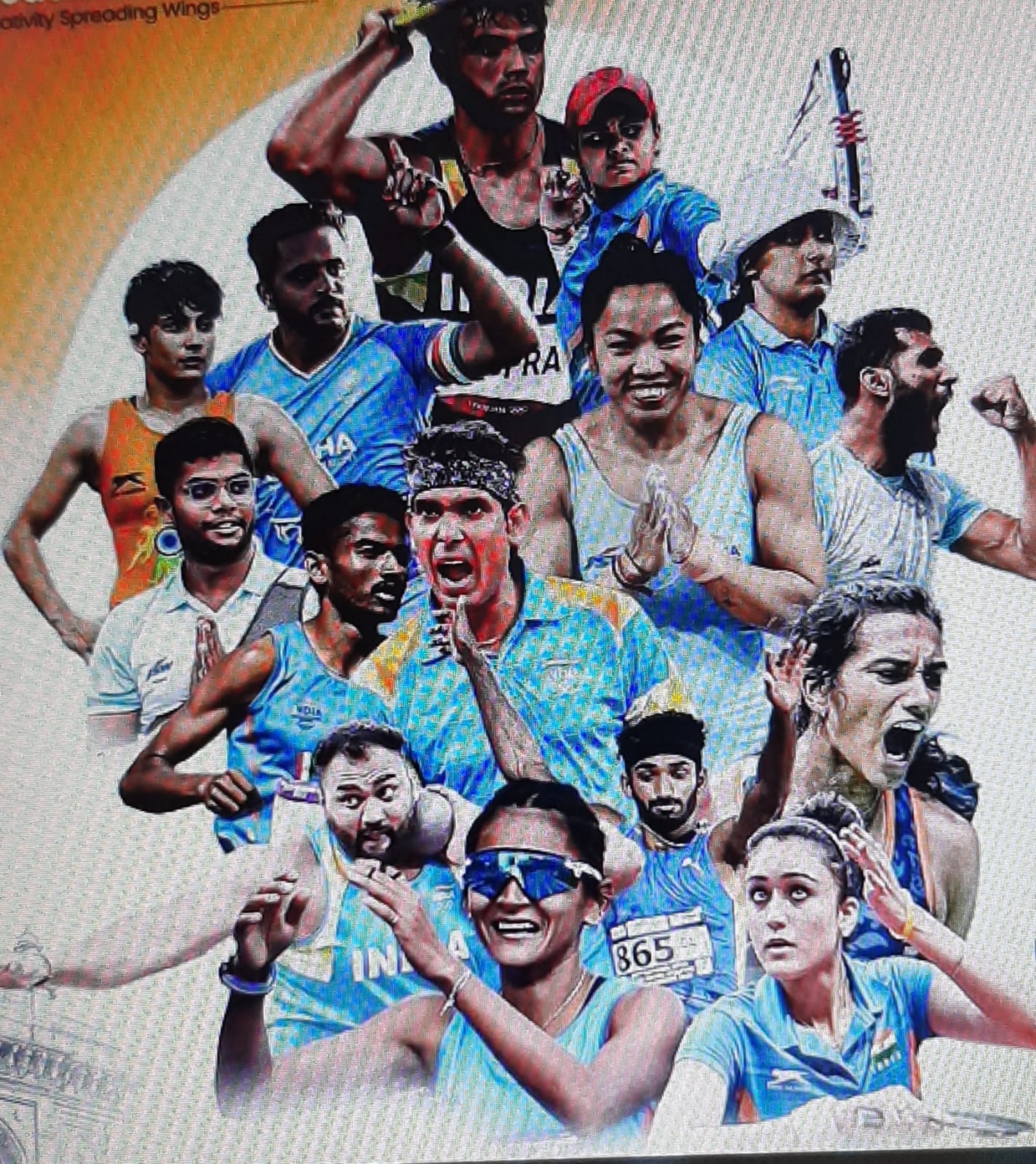
The transformation of Indian athletes into corporate salesmen is a disappointing commentary on the state of modern sports. While endorsements and sponsorships are not inherently wrong, they should never come at the cost of neglecting the greater role that athletes can—and should—play in society, writes Dr. Kanishka Pandey of IMT Ghaziabad
Indian sportspersons were once seen as national heroes, symbols of grit, dedication, and the embodiment of the country’s hopes and aspirations. They were not just players; they were role models, uniting a billion people with their passion and determination. But in recent years, this image has undergone a troubling transformation. Many of our top athletes have traded their roles as social changemakers for the far more lucrative and less demanding title of corporate salesmen.
Instead of inspiring the nation through their actions both on and off the field, these sportspersons now spend more time endorsing products than advocating for meaningful causes. Their appearances are no longer limited to stadiums or playing fields; they are now fixtures on television screens, hoardings, and social media platforms—pitching everything from soft drinks to luxury cars, and yes, even inverters.
Sachin Tendulkar: The God of Cricket or the Salesman of Inverters?
Take the example of Sachin Tendulkar, often referred to as the “God of Cricket.” His contributions to Indian cricket are unparalleled, and his name is synonymous with excellence and dedication. Yet, in the years since his retirement, Tendulkar has become more visible as the face of brands than as a voice for social causes.
One particular endorsement was for inverters. Seeing a legendary figure like Tendulkar pitch household electrical appliances was a stark reminder of how even the most celebrated athletes have succumbed to the lure of commercialization. The man who carried the hopes of an entire nation on his shoulders now carries brand slogans, often for products entirely unrelated to his field of expertise or his stature as a cultural icon.
The Rise of the Corporate Athlete
Sachin Tendulkar is not alone. Today, Indian athletes across sports are synonymous with corporate brands rather than the values they once represented. Cricketers like Virat Kohli and Rohit Sharma, badminton stars like PV Sindhu, and even Olympic medallists like Neeraj Chopra are celebrated as much for their endorsements as for their achievements.
This trend is not limited to advertisements alone. Social media has become a new playground for these corporate athletes. Sponsored posts, brand collaborations, and commercial campaigns dominate their profiles, reducing their image to that of influencers rather than nation-builders.
In this relentless pursuit of commercial success, Indian sportspersons are increasingly neglecting their larger societal role. The time and effort spent on brand promotions could instead be used to address pressing social issues, champion meaningful causes, or contribute to the development of grassroots sports.
Neglecting the Bigger Picture
The impact of this corporate focus is far-reaching. India is a country with stark socio-economic inequalities, communal tensions, and a population desperate for inspiration. Athletes, with their unparalleled reach and influence, are uniquely positioned to bridge divides, foster harmony, and drive meaningful change.
Yet, their silence on critical issues is deafening. From poverty and education to mental health and gender inequality, Indian athletes have largely refrained from using their platforms to address the challenges faced by their fans. Instead, their voices are reserved for product pitches and marketing campaigns.
In stark contrast, global athletes like Marcus Rashford, who successfully lobbied the UK government to provide free school meals to underprivileged children, or Muhammad Ali, who fearlessly championed civil rights, have shown what can be achieved when athletes embrace their societal roles. Indian sportspersons, however, have largely confined themselves to commercial endeavours, ignoring the transformative potential of their influence.
It is time for Indian athletes to rethink their priorities. They must recognize that their fame and influence are not just privileges but responsibilities. Here is how they can reclaim their roles as changemakers:
- Advocate for Societal Causes: Athletes should use their platforms to address critical issues like education, gender equality, and social justice. Their voices can bring attention to problems that often go unnoticed.
- Support Grassroots Sports: Many of these athletes rose from humble beginnings. They are in a unique position to nurture young talent and create opportunities for the next generation.
- Engage in Community Development: Beyond charitable donations, athletes should actively participate in community-building initiatives, fostering unity and inclusion.
- Speak Out Against Injustice: Silence in the face of societal wrongs is complicity. Athletes must find the courage to stand up for what is right, even when it is uncomfortable or unpopular.
Sportspersons or Salespersons?
The transformation of Indian athletes into corporate salesmen is a disappointing commentary on the state of modern sports. While endorsements and sponsorships are not inherently wrong, they should never come at the cost of neglecting the greater role that athletes can—and should—play in society.
India’s sportspersons must remember that they are more than just pitchmen for products; they are leaders, role models, and symbols of hope for millions. By choosing to focus on social impact rather than commercial gain, they can reclaim their rightful place as agents of change in a country that desperately needs them.
The question is not whether athletes can sell products. The question is whether they are willing to sell out their potential for societal impact.
(Dr. Kanishka Pandey is Faculty and Head- Centre for Sports Research, IMT Ghaziabad)









